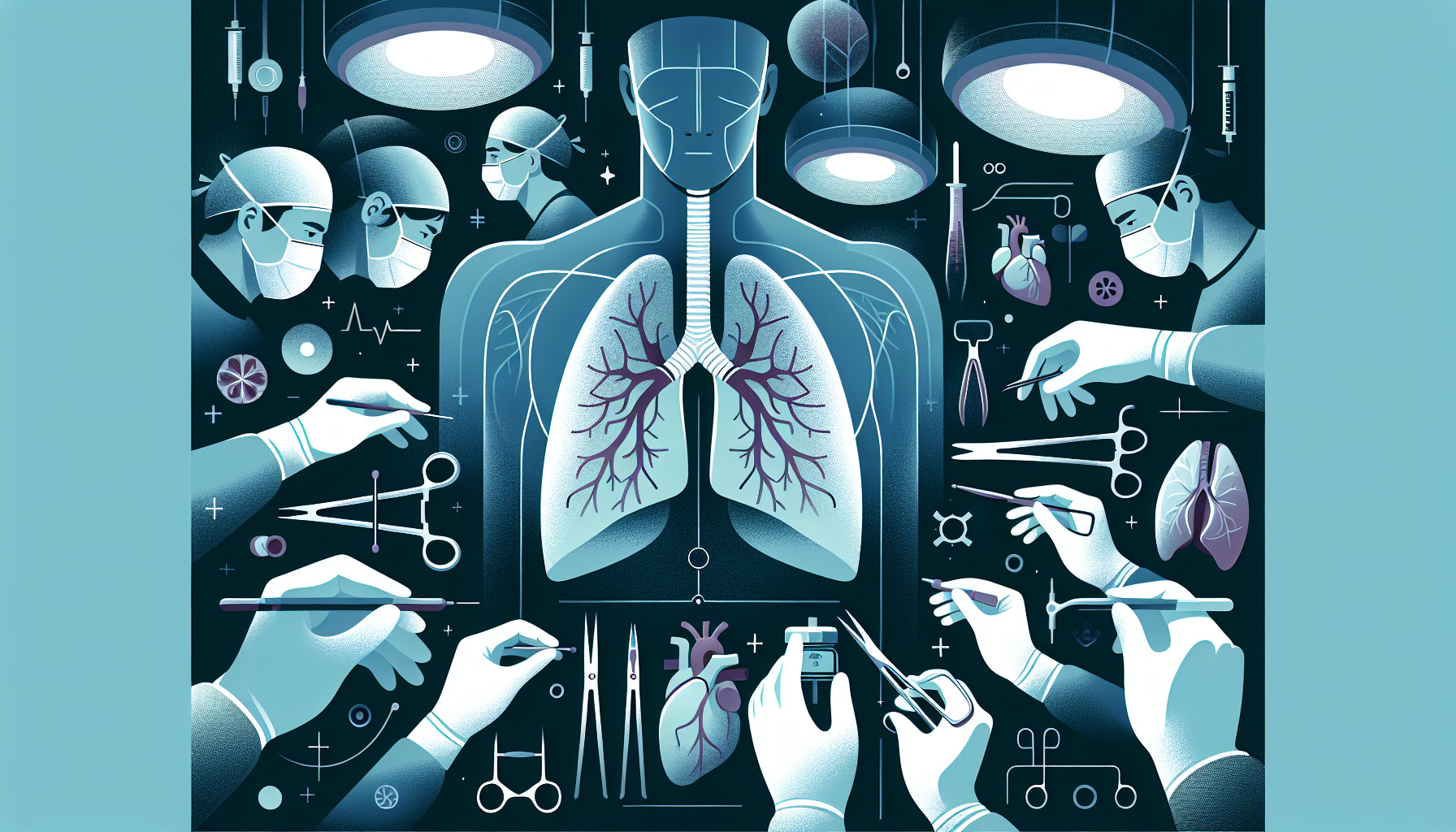Our Summary
This research paper is about the issues and improvements in the field of lung transplantation, which is the final treatment option for severe lung disease. A major problem is that there are not enough lungs available for transplant. This report suggests that taking organs from donors after their hearts have stopped could be a way to increase the number of available lungs.
There are also ongoing discussions about the best way to keep lungs in good condition until they are transplanted. This paper talks about recent developments in keeping lungs at a low temperature to preserve them, including new portable devices.
Another topic covered is the effectiveness of different treatments to help patients while they are waiting for a transplant.
The paper emphasizes the need for further improvements in managing organ donors, preserving organs, and caring for patients before and after surgery to improve the results of lung transplants.
FAQs
- What is the definitive treatment for end-stage lung disease?
- What are the major challenges faced in lung transplantation procedures?
- What advancements have been made in donor management and organ preservation for lung transplants?
Doctor’s Tip
One helpful tip a doctor might tell a patient about lung transplant is to carefully follow the post-transplant medication regimen prescribed by their healthcare team. This includes taking immunosuppressant drugs as directed to prevent rejection of the new lung and attending all follow-up appointments to monitor progress and address any issues that may arise. It is also important for patients to maintain a healthy lifestyle, including regular exercise and a balanced diet, to support overall lung health and improve long-term outcomes post-transplant.
Suitable For
Patients who are typically recommended for lung transplant are those with end-stage lung disease who have exhausted all other treatment options and have a significantly reduced quality of life. This includes patients with conditions such as cystic fibrosis, chronic obstructive pulmonary disease (COPD), idiopathic pulmonary fibrosis, pulmonary hypertension, and bronchiectasis. Candidates for lung transplant undergo a thorough evaluation process to ensure they are suitable candidates for the procedure and are likely to benefit from the transplant. Factors such as age, overall health, and ability to adhere to post-transplant care regimens are taken into consideration when determining eligibility for lung transplant.
Timeline
Before lung transplant:
- Patient is diagnosed with end-stage lung disease and is evaluated by a transplant team to assess eligibility for transplantation.
- Patient is placed on the transplant waiting list and undergoes extensive testing and evaluations to determine the best course of treatment.
- Patient waits for a suitable donor organ to become available, which can vary in length depending on availability and compatibility.
- Patient may undergo pre-transplant treatments and therapies to improve their overall health and readiness for surgery.
After lung transplant:
- Patient undergoes the lung transplant surgery, which can take several hours to complete.
- Patient is closely monitored in the intensive care unit (ICU) post-surgery to ensure proper healing and recovery.
- Patient may experience complications such as rejection, infection, or organ failure, which require additional treatment and care.
- Patient undergoes extensive rehabilitation and therapy to regain strength and function in the new lungs.
- Patient is closely monitored by the transplant team for the rest of their life to ensure proper functioning of the transplanted lungs and to address any potential issues that may arise.
What to Ask Your Doctor
- How long is the waiting list for a lung transplant and what factors determine the wait time?
- What are the risks and potential complications associated with a lung transplant surgery?
- How successful is the transplant program in terms of survival rates and long-term outcomes?
- What is the process for finding a suitable donor match and how is organ rejection managed post-transplant?
- What is the recovery process like after a lung transplant and what kind of ongoing care will be required?
- Are there any lifestyle changes or medications that will need to be followed post-transplant?
- What kind of support and resources are available for patients and their families throughout the transplant journey?
- Are there any alternative treatment options or experimental therapies that could be considered in addition to or instead of a lung transplant?
- How often will follow-up appointments and monitoring be needed after the transplant surgery?
- What is the expected prognosis and quality of life for a patient after receiving a lung transplant?
Reference
Authors: Niroomand A, Lindstedt S. Journal: J Intern Med. 2025 Apr;297(4):355-365. doi: 10.1111/joim.20072. Epub 2025 Mar 5. PMID: 40040535
